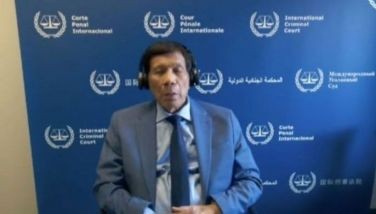The dynamics of power

You and I have heard of stories that upset us at best, or makes us nauseous at worst. And these are tales and stories of powerful men (and women) behaving at their worst. We’ve seen them in action. We have consoled people who were at the receiving end of their misbehavior, and many of us still cannot understand why they did what they did.
They refuse to follow rules. They scream at waiters and security guards. Some assault hotel maids, supermarket clerks, and nannies, and the list goes on and on.
What is it that motivates people in power to abuse it?
Power comes in many forms. It comes from a leadership position and rests inside an executive’s office. It comes from fame. The silver screen has the power to make people believe they are actually bigger than who they really are. It inflates the ego and makes the personality unable to distinguish what is real and what is scripted.
Power also comes through an elected office, and obviously, the easiest source of power comes in the form of money. Lots of it. Through money and business empires, a person from obscurity can gain fame and be in a position of importance that provides the bearer with immense power. It has been said that if you want to test a man, give that man power. And I totally believe this. Power is precious and at the same time precarious as well.
Power can be a dangerous thing, too. This is why promotions of high potential people in the work place is an extremely risky thing to do. When we place people who are not well respected, especially the incompetent, then these people would most likely turn into little tyrants. They substitute competence with ego and power trips which is a disguise for their inadequacy. Tyrants drive away good people and will cost the company a fortune.
When power is granted or handed over to people struggling with low worth and self-esteem, they would use their “Power Tools” and be abusive. I have seen these types both in the corporate world as well as in other forms of institutions. I have seen how people suck up and kick down, which means they kiss up to higher authorities through flatteries, endear themselves to their bosses and once they get their promotions, they kick down on their underlings as a form of compensating for their obnoxious behavior.
Power also increases hypocrisy. While they exert power and influence themselves, they do not do the same things they say and this decreases the respect their people have for them. Power somehow makes people think they can be exempted from the rules that govern the place. They expect special treatment and are entitled to special benefits because they think they really are “special.”
Maybe this feeling is caused by hubris and over confidence. They have power, therefore, they can use and wield at all times. Most people are passive. They give in to what they want while the few that stand by their ground and stick to rules get the ire and the “punishment” from these petty potentates.
The hypocritical powerful may be feared inside their territorial stronghold, but certainly do not command the respect of the people from the outside. And the worst thing of all is that many of these tyrants do not even know they are, and as the old cliche goes, “give them enough rope and one day they will hang themselves.”
The paradox of power is that the very traits that helped the leaders build their influence like being humble, courteous, polite and honest become temperamental, impulsive, reckless, insensitive and rude.
All of a sudden, people are viewed as either stepping stones or stumbling blocks toward their goals. This new found authority makes them less sympathetic to the concerns and emotions of others. Perhaps, this is the way they handle pressure. And all of us may fall into the same trap. This is why we need to develop the right skills and mindset to deal with power.
People in power need to balance their power in terms of cultivating a “respective mindset.” This is the ability to intentionally see themselves in the eyes of other people and to see what other people see in their own eyes. It is the skill of not allowing pride to take control, to put the ego in check, and to embrace humility in all of his or her words and actions.
Business organizations should take their corporate governance policies seriously. HR directors should be empowered to do their jobs without fear of repercussion. Leaders should be sent to leadership trainings that do not only deal with hard skills, but soft skills as well.
The powerful should be surrounded by mentors or trusted advisors who have the courage to call a spade or a dirty shovel, if necessary.
And then we are inspired by the really powerful people who go out of their way to shun the appearance of power and is viewed as being humble. We respect them, we admire them and we actually hand them even more power. These are the people who last and leave a legacy that makes the world a better place.
Money, power and fame: these things change people but the most sobering thought is that one day they will all be gone. We have been entrusted to be stewards of power, not to own it.
I guess after all, the most important thing is not what we have done, but rather, what we have become.
(Send your leaders. Bring your key people. Attend and experience two inspiring days with Francis Kong learning leadership and life skills in his widely acclaimed Level Up Leadership March 16-17 at the EDSA Shangri-La Hotel. For further inquiries contact Inspire at 09158055910 or call 632-6310912 or 6310660 for details.)
- Latest
- Trending



























